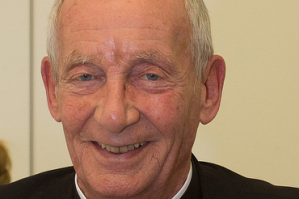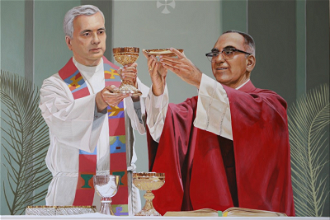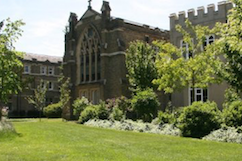Archbishop Smith welcomes Assisted Suicide guidelines; SPUC disagrees

Archbishop Peter Smith
The Most Reverend Peter Smith, Archbishop of Cardiff Chair of the Bishops' Conference of England and Wales Department of Responsibility and Citizenship has issued the following statement in response to the new DPP guidlines on Assisted Suicide.
Archbishop Smith said: "He was given a near impossible task by the Law Lords and many people were extremely concerned by the wording of the interim guidelines and some of the factors to be taken into account against prosecution.
"In issuing these Guidelines it is clear that the DPP has listened very carefully to, and taken account of, the many representations made to him during the consultation. Our particular concerns were that the interim Guidelines gave less protection under the law to disabled or seriously ill people, and to those who had a history of suicide attempts and were likely to try again. There also appeared to be a presumption that a spouse or close relative would always act simply out of compassion and never from selfish motives. These factors have been removed from the new Guidelines which now give greater protection to some of the most vulnerable people in our society. There is also a greater stress on the fact that the law has not changed, that all cases will be investigated and that no one is being given immunity from prosecution under these Guidelines."
Describing the Archbishop's comments as "very disturbing: Paul Tully of SPUC Pro-Life, said: "While today's final guidelines certainly appear to have eliminated some of the worst aspects of the interim guidelines, today's guidelines retain many damaging elements. Today's guidelines fail to mention relevant factors from the general Code for Crown Prosecutors, which tells prosecutors that a victim's disability or vulnerability are factors that should weigh in favour of a prosecution. The element of implicit discrimination is more subtle, but it is still there.
"Furthermore, today's guidelines still represent a significant shift towards judging the suspect's motive ("compassion") in committing the crime, rather than his/her intention (to help cause death). This shift clearly undermines the protection that the law affords to those who might commit suicide, and leaves prosecutors with a very difficult task, when faced with relatives who claim to be grief-stricken by the death of someone they loved, but helped to commit suicide", concluded Mr Tully.
Source: CCN/SPUC





















